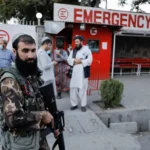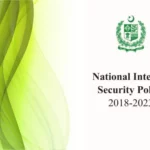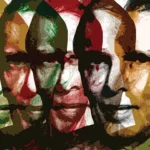India, the world’s largest democracy, has long been a symbol of hope and progress in the world. However, Narendra Modi’s tenure as Prime Minister of India has been a period of negative transformation of India. This transformation is accompanied by a series of controversies and challenges, which have cast a shadow over the country’s image and standing as the champion of democracy of world values.
Series of Blunders
The Modi Government’s tenure has been marked by numerous controversial decisions with negative outcomes. The 2016 demonetization, as a result of which, 86% of India’s currency disappeared overnight, aimed at curbing black money, resulted in widespread economic disruption and cash shortage, disproportionately impacting the poor and informal sectors of the society.
India’s economic performance under the current regime has particularly been a cause for concern.
According to the 2023 Global Hunger Index, India ranks 101st out of 121 countries, categorized as having “moderate” hunger. Inflation has remained a persistent problem, with a toll on purchasing power. A 2022 report by the Centre for Monitoring the Indian Economy (CMIE) estimated India’s unemployment rate to be at an alarming 8%. These economic issues have fueled social unrest, with widespread protests by Indian farmers in Punjab, who are demanding better crop prices and loan waivers.
Beyond economic woes, India grapples with a fraying social fabric. Communal lynchings, particularly those targeting religious minorities, have become disturbingly common. Human Rights Watch documented 97 cow vigilantism incidents between 2014 and 2018 alone, resulting in dozens of deaths. Similarly, fake encounters, where police kill suspects outside legal bounds, and custodial deaths raise serious human rights concerns. The National Crime Records Bureau reports over 150 encounter deaths in 2021, but independent human rights groups suspect many to be fabricated, masking extrajudicial killings. These incidents not only endanger individuals but also erode trust in law enforcement besides eroding India’s social cohesion.
Several other events underscore a deeper crisis in governance under the Modi Administration.
The 2019 Balakot Airstrike in Pakistan, a response to the Pulwama Attack, raised questions about the effectiveness of the military operation and the use of media for political gains. This triggered heightened tensions with Pakistan and also raised concerns over false flag operations, a favourite playbook of Modi right before elections, instead of working on governance issues.
Also Read: From Nehru to Modi
In addition, “Godi Media,” a term used by critics to describe media outlets perceived to be biased towards the Government, has fueled concerns about press freedom.
Last but not least, the ongoing Farmer Protests and the controversy surrounding Electoral Bonds, which are known as opaque instruments used to fund political parties, point towards a weakening of democratic institutions.
Challenges of Modern India and their Impact on Masses
The ripple effects of the above-mentioned crises are felt most acutely by ordinary Indians. The COVID-19 pandemic exposed the inadequacies of the healthcare system, with India witnessing one of the world’s highest death tolls. According to Worldometer, India has reported over 218,000 deaths due to COVID-19 (as of April 14, 2024).
Moreover, the plight of farmers facing debt and despair has resulted in a rise in suicides. A 2021 report by the National Crime Records Bureau of India (NCRB) found that 5,681 farmers and agricultural workers died by suicide. Infrastructure issues, such as flooded airports and train accidents, showcase a crumbling infrastructure impacting public safety and travel. For instance, in July 2023, heavy monsoon rains caused flooding at Mumbai’s Chhatrapati Shivaji Maharaj International Airport, disrupting air travel for thousands. Additionally, according to the NCRB, there were 12,258 train accidents in India in 2021. These incidents raise concerns about the safety and reliability of India’s transportation infrastructure.
India’s international standing has also come under strain. The ongoing border tensions with China, particularly the 2020 Galwan Valley clash, have raised concerns about national security. India’s international image has been tarnished by its transnational assassination spree abroad.
Authentic reports of Indian intelligence agency involvement in the killings of Sikhs in Europe, the United States, Australia, and even Pakistan have sparked outrage and raised concerns about due process and respect for international law.
These incidents have not only eroded trust with other nations but also complicated diplomatic efforts.
A Long List of Unresolved Issues: Challenges of Modern India
The problems plaguing India go beyond the ones mentioned above.
The nation continues to grapple with issues like terrorism, black money circulation, political corruption through practices like horse-trading (bribing MLAs to switch parties) and Operation Lotus (destabilizing opposition governments), controversial figures like Pragya Thakur, a Member of Parliament accused of terrorism links, drug hauls exposing weaknesses in border control, the Adani Group controversy raising concerns about crony capitalism, the ongoing genocide in Kashmir, failed government schemes aimed at poverty alleviation or job creation, the depreciation of the Rupee against major currencies, data leaks highlighting cybersecurity vulnerabilities, rising petrol prices impacting transportation and essential goods, and a weakened judiciary facing allegations of political interference.
Amidst such challenges, a concerning trend has emerged: the rise of Hindu nationalism as a dominant political narrative.
Supporters of the Government, often referred to as “Hindutva Bakhts” (devotees of Hindutva, a Hindu nationalist ideology), prioritize the idea of a Hindu nation over issues like economic hardship or social unrest.
A Nation at a Crossroads
While the Government enjoys strong support from a segment of the population, addressing the concerns of all citizens and fostering national unity remain critical for India’s future. Can the country navigate these complex challenges of modern India and emerge as a truly inclusive and prosperous democracy? Only time will tell.
The views expressed in this article are the author’s own. They do not necessarily reflect the editorial policy of the South Asia Times.
Manahil Jaffer is a graduate in International Relations from National Defense University. Her interest lies in the domain of foreign affairs, terrorism and politics of Pakistan. She can be reached on X @ManahilJaffer

![India faces diverse challenges beyond economics, including imminent overtaking of China as the world's most populous nation [Getty Images].](https://southasiatimes.org/wp-content/uploads/2024/04/1673275741989.webp)



Add a Comment